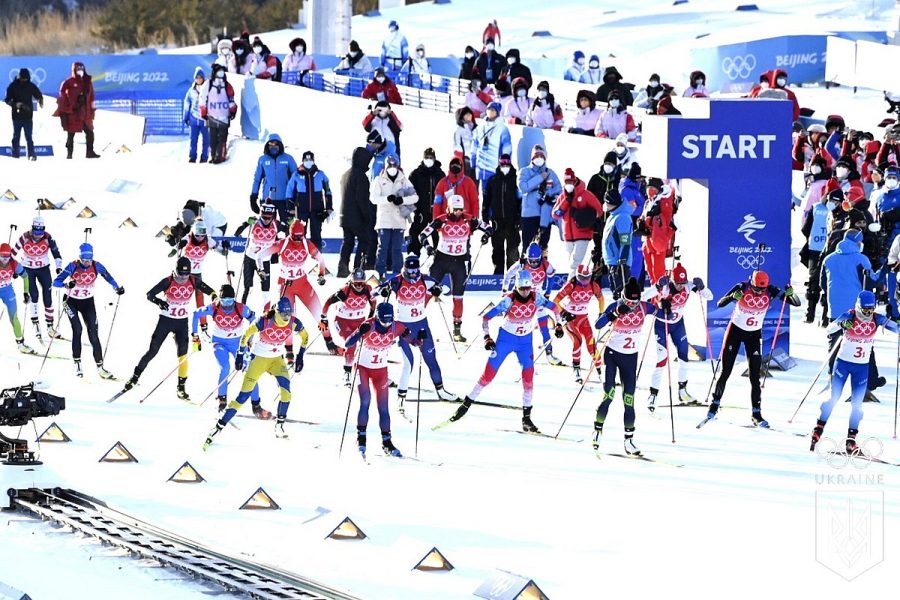Beijing Plays Host to a Anything but Typical Olympics
February 16, 2022
The 2022 Winter Olympics marks the first time that a city has hosted both the Summer and Winter games in Olympic history as Beijing plays host to the 24th edition of the Winter Olympics.
Lots of attention has been focused on the Chinese capital’s strategy of hosting as everything from the pandemic to the artificial snow has played a big role in the planning of the games.
From the beginning many questioned the decision for Beijing to host the Winter Olympics as the capital city typically sees nearly no annual snowfall and averages temperatures just below freezing in the month of February. And with China’s strict Covid-19 policies, many questioned if it would even be possible for the games to take place amid the pandemic. Despite the doubts China stayed committed to hosting the games.
This year for the first time in history the Winter Olympics is taking place on 100 percent artificial snow due to the lack of the snow in the mountain region above Beijing. It has been estimated that 1.2 million cubic meters of water was needed to produce enough snow for the Olympics. An Italian company TechnoAlpin is the company behind supplying the snow in a contract worth north of 20 million.
The artificial snow has been somewhat of a controversy at the Olympics among the competitors. There has been a mixed reception of the completely artificial snow as some like it and others don’t. Matt Cox, a snowboarder, told CBS Sports that he likes the snow saying “The snow is super grippy here. Also…because usually when you get to man-made snow and you rip into an edge, for instance, it slides out on you pretty easily, but with the cold temps here, it’s dreamy snow.”
Johanna Taliharm had a differing opinion and when asked about the snow by CBS Sports saying “Artificial snow is icier, therefore faster and more dangerous. It also hurts more if you fall outside of the course when there is no fluffy snowbank, but a rocky and muddy hard ground.”
Covid-19 has also played a big role in this year’s Olympic games as China continues to enforce its strict pandemic policies. Foreign spectators and fans are not allowed to be in attendance. Volunteers, athletes, and media are contained in bubbles and must be fully vaccinated or have had to spend 21 days in quarantine prior to the games.
Due to the pandemic athletes have voiced concerns about the conditions and the food that they have been presented with thus far. Russian biathlete Valeria Vasnetsova told USA Today, “I’m very pale and I have huge black circles around my eyes. I want all this to end. I cry every day.” She continued “I’ve lost a lot of weight and my bones are sticking out. I can’t eat anything else, I don’t know anything about my corona tests.”
In response to the athletes voicing their concerns the International Olympic Committee held a press conference. The IOC laid out steps that it would take in order to “individually and collectively” work with the athletes. However the IOC did partially blame the Beijing Olympic Organizing Committee because it was their “responsibility for dialogue with the hotels.”
Amid the untypical circumstances of this year’s Olympics the show has gone on. Athletes have now completed for just over a week. The Olympics have achieved their goal once again of bringing the world together in times of uncertainty to compete in the some 109 different events.

